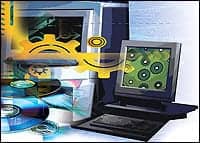Immunetics Inc announced plans to present a rapid test for bacterial contamination of platelets at the American Association of Blood Banks (AABB) Annual Meeting, October 21 to October 25, in San Diego.
Bacterial contamination of platelets has been identified as the number-one infectious risk of transfusion, with approximately one out of 2,000 platelet units contaminated. Transfusion of bacterially contaminated platelets poses a significant health risk, potentially resulting in serious to fatal illness in the recipient. Traditional methods for detecting bacteria are based on inoculation of platelet samples into culture bottles followed by a 24- to 72-hour waiting period. In addition to the lengthy incubation period, recent studies have shown these methods to be prone to both false positive and false negative results. Culture testing has been routine for single donor platelets but is not practical for pooled whole blood-derived platelets, which must be used within 4 hours of pooling. About five million platelet units are collected annually in the United States along with an equal number in other countries.
Immunetics’ BacTxxAE can detect bacterial contamination by clinically relevant species in less than one hour, at levels below those shown to be harmful to transfusion recipients. Multi-center clinical trials have been concluded in which the performance of the BacTx test was evaluated on whole blood-derived random-donor platelet units.
Source: Immunetics Inc


